
Book review – “Mysteries of the Libyan Desert” by W.J. Harding King
William Joseph Harding-King was educated at Trinity College, Cambridge. His first journey into the Sahara took place in 1900, after which he published his book In Search of the Masked Tawareks. He returned to the Sahara again in 1908 and then again between 1909 to 1912. His contributions to a number of journals represented a significant contribution of knowledge to desert studies and he was awarded the Gill Memorial Memorial Medal by the Royal Geographical Society in 1919. Mysteries of the Libyan Desert was considered to be his most important book. [more…]
Edition - March, 2014
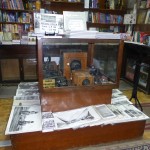
Photographing the Past – The Gaddis Legacy
By Kate Gingell. Published on In Brief, Egyptological, 20th March 2014 During my many visits to Luxor I have always visited the Gaddis Bookshop to browse through all the old photographs and cameras. Until my last visit in November 2013 I did not know the history of the shop nor the story behind the […] [more…]
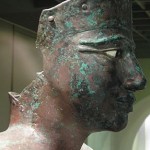
Labib Habachi A Life to Know…. Part 1
The story of Labib Habachi was predictable (Figure 1). For centuries Egyptians suffered from the prejudicial views of foreigners arriving in their country. Some came in search of treasure, others in pursuit of knowledge and many simply to pass time because they had the wealth to do so. Half-hearted efforts were made by a few to train Egyptians as excavators, such as when a University was opened in 1869 in Bulaq. Lacking support and adequate funding it proved unsuccessful, closing its doors in less than five years. [more…]
Edition - November, 2012
TV Review of “Find My Past: Tutankhamun”
The two main themes of the show Find My Past: Tutankhamun are the discovery of the tomb of Tutankhamun (KV62), and the curiosity of descendents of three of the individuals who attended the opening of the tomb about their ancestors. [more…]
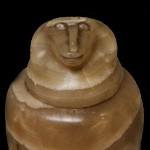
The Egyptian items at the Lady Lever Art Gallery, Merseyside
To call William Hesketh Lever an entrepreneur or a visionary would be to pin him down, to imply a limit to the scope and depth both of his personality and his achievements. Lever was both these things, but he was so much else besides. He was a philanthropist, an innovator, a skilful salesman, a marketing genius, politician, eccentric, fanatic, occasionally a tyrant, even on occasion an inventor, a supporter of the rights of women, factory workers and the elderly, an enthusiastic ballroom dancer and always a family man. He made some grim mistakes, particularly with respect to his Pacific and African ventures, but his astonishing contributions to social progress in England are spectacularly praiseworthy, and he was knighted for them. Amongst his various extra-curricular obsessions, which included architecture, ferns and gymnastics, the 1st Viscount Leverhulme was a dedicated collector. [more…]
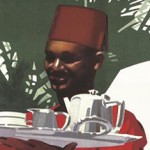
Book Review: Grand Hotels of Egypt in the Golden Age of Travel
Grand Hotels of Egypt is essentially a book about the influx of western visitors into Egypt after Napoleon had departed and Anglo-American style infrastructure had arrived in the nineteenth and early twentieth centuries. Using contemporary accounts and photographs, cartoons and some remarkable marketing material in full colour, Andrew Humphreys explores the role of the grand hotels of the day in the constant swirl of people as they experienced Egypt’s towns and cities. [more…]
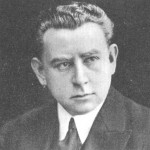
Arthur Weigall: A Man Out of Time – Part 2
As we saw in Part 1, in spite of his lack of a formal education Arthur Weigall pursued the role of archaeological excavator, achieving his dream of working in Egypt. Although his initial achievements were minimal, he was promoted to the position of an Inspector in Egypt, a role he took on with energy and dedication. He was fiercely protective of monuments from Luxor to Nubia, often falling into dispute with the authorities and wealthy patrons over the importance of preservation through proper archaeological technique. [more…]

Arthur Weigall: A Man Out Of Time – Part 1
In this article, I will explore the contributions that Arthur Weigall (figure 1) made to the field of Egyptology. I knew of Weigall’s involvement as a reporter during the excavation of Tutankhamen’s tomb by Howard Carter, and his open criticism of Carter and Carnarvon’s exclusive reporting agreement with the Times, but later discovered that he had already had an impressive career in Egypt. That in fact by the time he came to cover Carter’s discovery his career in Egyptology was already over and he had not returned to Egypt in over nine years. [more…]
 By
By